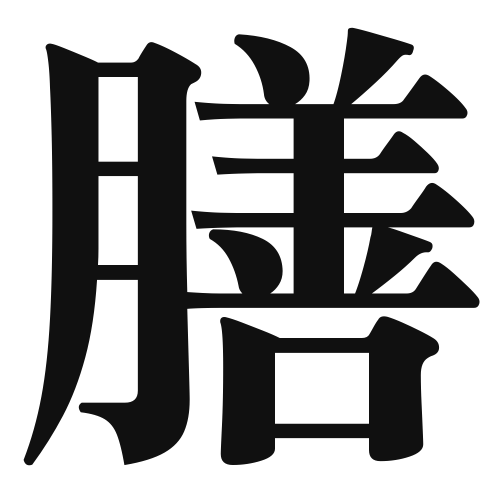1. Overview of Meaning
The kanji “膳” (zen) primarily refers to a meal or a tray used for serving food. It is often associated with traditional Japanese dining, particularly in the context of formal meals or ceremonies.
2. Formation and Radical
Formation of the Kanji: The kanji “膳” is a compound character, which means it is formed by combining different elements. It consists of the radical “肉” (niku), which means “meat” or “flesh,” and the phonetic component “善” (zen), which contributes to its pronunciation.
Radical: The radical of “膳” is “肉” (niku), indicating its connection to food and dining.
3. Examples of Usage
Common Words and Phrases: Some common words that include “膳” are “膳立て” (zendate), meaning “meal preparation,” and “膳所” (zendokoro), referring to a dining place.
Example Sentences in Daily Conversation:
- 「今晩の膳は何ですか?」 (What is for dinner tonight?)
- 「この膳はとても美味しそうです。」 (This meal looks very delicious.)
4. Synonyms and Antonyms
Similar Kanji: A similar kanji is “食” (shoku), which means “to eat” or “food.” While “食” focuses on the act of eating, “膳” emphasizes the presentation and serving of the meal.
Opposite Kanji: An antonym could be “空” (sora), meaning “empty” or “void,” as it represents the absence of food or a meal.
5. Cultural and Historical Background
Connection to Japanese Culture: The kanji “膳” is deeply rooted in Japanese dining traditions, where meals are often served in a formal manner, especially during special occasions and ceremonies.
Proverbs and Idioms: One common saying is “膳を整える” (zen o totonoeru), which means “to prepare a meal,” highlighting the importance of preparation in Japanese culture.
